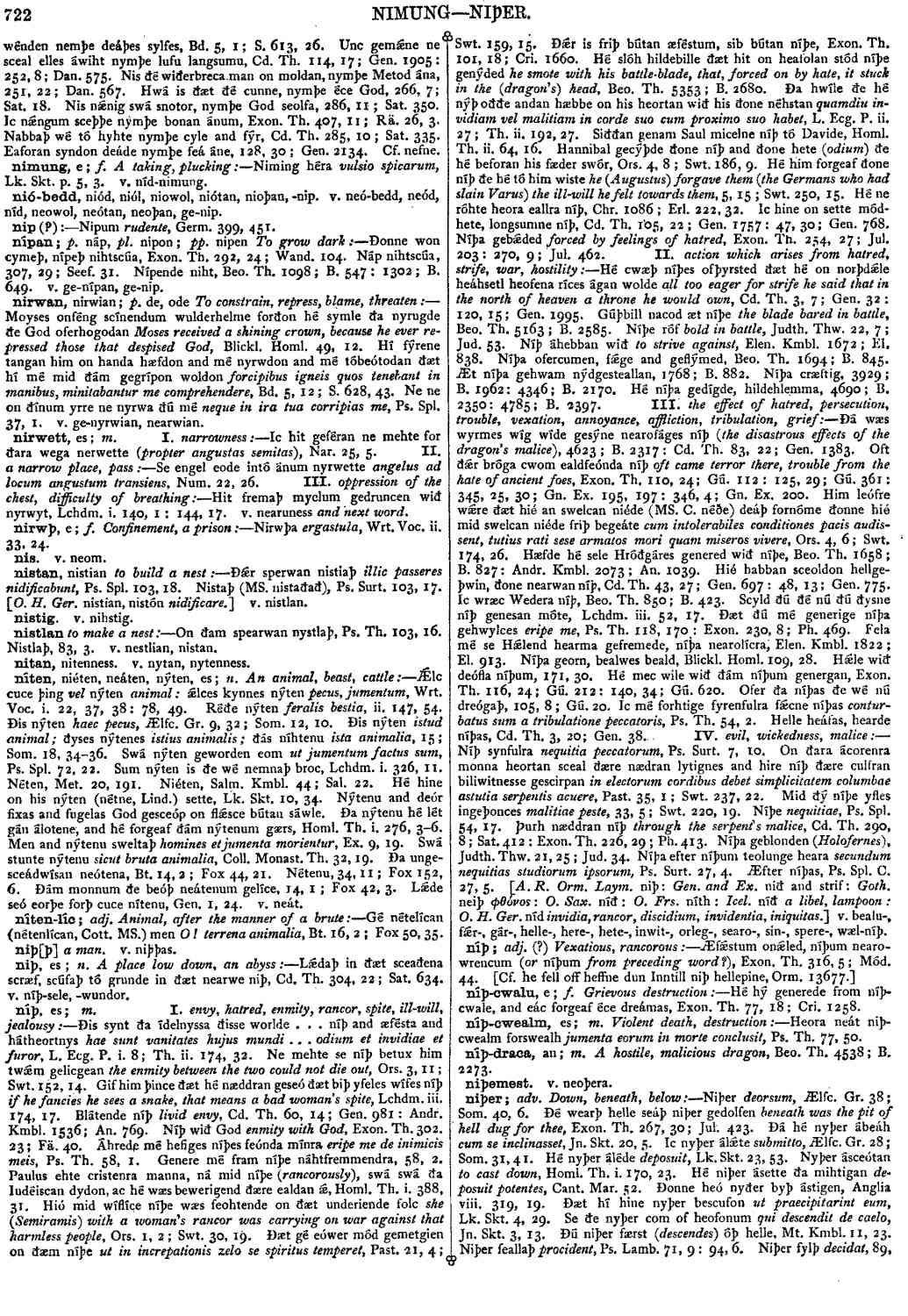níten
- noun [ neuter ]
-
Ǽlc cuce þing vel nýten
animal :
ǽlces kynnes nýten
pecus, jumentum,
- Wrt. Voc. i. 22, 37, 38 : 78, 49.
-
Réðe nýten
feralis bestia,
- ii. 147, 54.
-
Ðis nýten
haec pecus,
- Ælfc. Gr. 9, 32 ;
- Som. 12, 10.
-
Ðis nýten
istud animal;
ðyses nýtenes
istius animalis;
ðás níhtenu
ista animalia,
- 15 ;
- Som. 18, 34-36.
-
Swá nýten geworden eom
ut jumentum factus sum,
- Ps. Spl. 72, 22.
-
Sum nýten is ðe wé nemnaþ broc,
- Lchdm. i. 326, 11.
-
Néten,
- Met. 20, 191.
-
Niéten,
- Salm. Kmbl. 44 ;
- Sal. 22.
-
Hé hine on his nýten (nétne, Lind.) sette,
- Lk. Skt. 10, 34.
-
Nýtenu and deór fixas and fugelas God gesceóp on flǽsce bútan sáwle. Ða nýtenu hé lét gán álotene, and hé forgeaf ðám nýtenum gærs,
- Homl. Th. i. 276, 3-6.
-
Men and nýtenu sweltaþ
homines et jumenta morientur,
- Ex. 9, 19.
-
Swá stunte nýtenu
sicut bruta animalia,
- Coll. Monast. Th. 32, 19.
-
Ða ungesceádwísan neótena,
- Bt. 14, 2 ;
- Fox 44, 21.
-
Nétenu,
- 34, 11 ;
- Fox 152, 6.
-
Ðám monnum ðe beóþ neátenum gelíce,
- 14, 1 ;
- Fox 42, 3.
-
Lǽde seó eorþe forþ cuce nítenu,
- Gen. 1, 24.
Bosworth, Joseph. “níten.” In An Anglo-Saxon Dictionary Online, edited by Thomas Northcote Toller, Christ Sean, and Ondřej Tichy. Prague: Faculty of Arts, Charles University, 2014. https://bosworthtoller.com/23771.
Checked: 1